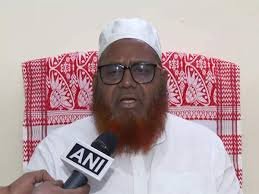All India United Democratic Front (AIUDF) MLA Rafiqul Islam has expressed serious concern over the sudden ceasefire following the recent militant attack in Pahalgam, Jammu and Kashmir. Speaking to reporters in Assam on May 14, he questioned the government’s decision to halt anti-terror operations so soon after the deadly incident. According to Islam, such actions send mixed signals and could embolden extremist elements if not handled with sustained and firm responses.
The Pahalgam attack, which shocked the entire nation, resulted in the loss of precious lives and renewed fears about the resurgence of terrorism in the region. In this context, the AIUDF MLA urged the central government to reconsider the move and continue stringent operations against all militant factions until the security situation is completely under control. He emphasized that the security forces had made significant progress, and any pause could disrupt the momentum.
Islam acknowledged the bravery and sacrifices of the Indian armed forces but insisted that policy decisions should reflect the urgency of the situation. He urged Union Home Minister Amit Shah and Defence Minister Rajnath Singh to ensure that the fight against terrorism remains relentless. He said that people across India, including in Assam, are closely watching how the government responds to threats, and they expect accountability and strength, not hesitation.
The AIUDF legislator also criticized what he called the “selective approach” of the central government in responding to terror-related incidents. He said while strong measures were sometimes taken, there were also instances where operations were softened or delayed without clear justification. Islam warned that such inconsistency could impact public morale and the confidence of the security forces.
In Assam, the issue resonated with many citizens who have long dealt with issues of security and insurgency in the northeastern region. Local reactions included both support for Islam’s demand and calls for national unity in combating terrorism. Various political analysts noted that the AIUDF’s statement reflects a broader sentiment among opposition parties that national security must be above politics.
Rafiqul Islam further urged Prime Minister Narendra Modi to address the Parliament and the nation, offering clarity on the government’s strategy post-Pahalgam. He said transparency and timely communication are crucial during such critical times. He added that while ceasefires may be necessary in some humanitarian contexts, the government must also ensure that such steps do not compromise the nation’s security.
He also drew attention to the fact that Kashmir remains a volatile region and any perceived leniency could be misinterpreted by cross-border terrorist outfits. According to him, the timing of the ceasefire, just days after a major attack, seemed poorly planned. He demanded a detailed briefing from security agencies and sought assurance that the safety of civilians and soldiers would not be sacrificed for political optics.
The AIUDF’s stance has triggered a wave of discussions in Assam’s political circles. While the BJP has yet to issue a formal response to Islam’s comments, several senior leaders have defended the government’s decision, stating that it was taken after careful evaluation by the security establishment. They maintained that counter-terror strategies involve not just military action but also intelligence, diplomacy, and ground realities.
Meanwhile, Assam residents expressed solidarity with the victims of the Pahalgam attack. Several candlelight vigils were held across the state, including in Guwahati and Barpeta, with citizens demanding that the central government prioritize long-term peace through decisive action.
The situation remains tense, and it is yet to be seen how the Centre will respond to calls from political leaders like Rafiqul Islam. For now, his demand for a continued and aggressive anti-terror stance has brought a sharp focus back to Kashmir and to the national debate on balancing security with diplomacy.
Islam’s remarks have also stirred debate among legal and civil society groups in Assam. Several human rights activists acknowledged the MLA’s concern but cautioned against advocating an indefinite military approach. They argued that while counter-terror operations are essential, long-term peace requires addressing the root causes of militancy through dialogue, justice, and socio-economic development. They urged the government to strike a balance between security enforcement and community engagement.
Political observers in Assam noted that Islam’s statement could be a strategic move to project AIUDF as a party that prioritizes national security while also holding the government accountable. This positioning could strengthen the party’s appeal among both moderate voters and those frustrated by what they see as reactive rather than proactive governance. It also signals the AIUDF’s intent to play a more assertive role in national policy discourse, especially ahead of the 2026 elections.
Meanwhile, some regional parties in the northeast have remained cautious in their response. Leaders from parties like the Asom Gana Parishad (AGP) and the Congress have refrained from directly supporting or opposing Islam’s views but have instead called for an all-party meeting to discuss national security policies in sensitive regions. They stressed the importance of unity and consensus when dealing with terrorism and insurgency.
In Kashmir, sources suggest that while the ceasefire may be temporary and tactical, further operations are being prepared discreetly. Security experts believe that such strategic pauses can sometimes help reconfigure forces, improve intelligence gathering, and avoid unnecessary civilian casualties. However, they also admit that the optics of such moves need careful handling to prevent public backlash.
The broader question emerging from this episode is the level of transparency in national security decisions and the role of elected representatives in shaping those discussions. Islam’s demand for accountability has amplified the call for greater parliamentary oversight and public communication when it comes to counter-terrorism measures. As the government crafts its next steps, the balance between secrecy, strategy, and public trust will remain crucial.

